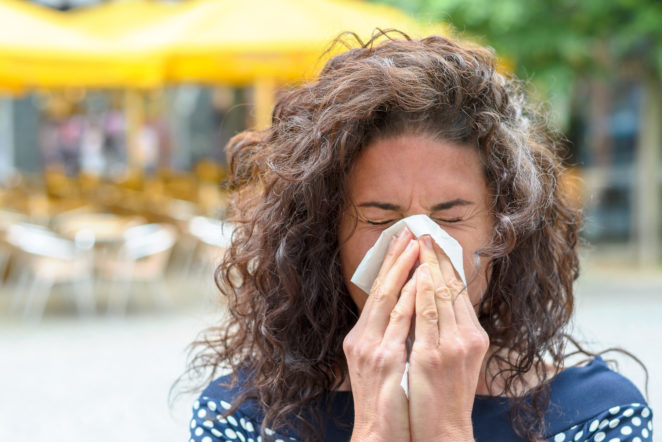Is that tickle in your throat from pollen or is it something you should worry about? Now that it’s spring in Michigan, many residents are going through the time-honored tradition of wondering, “Am I getting sick or this just allergies?” Now add a global COVID-19 pandemic into the mix, and that distinction becomes a lot more serious. To keep you healthy, we want to make sure you have a clear picture of the differences between COVID-19 symptoms and seasonal allergies.
Know the symptoms.
You may have heard them repeated many times on the news and in your social media news feeds, but they bear repeating. According to the CDC, the most common symptoms of COVID-19 include fever, cough and shortness of breath. They can also range to sore throat, headaches, muscle aches, loss of taste or smell and diarrhea. These symptoms can appear anywhere between two and 14 days after exposure.
As for common allergies, symptoms can vary. Lighter cases may encounter itchy eyes or nose and sneezing, whereas more severe cases can involve a sore throat, cough or even congestion. Many of these symptoms tend to heighten once spring weather begins and the pollen comes out.
Know when to act.
It’s normal to be a little more cautious than usual about that cough or sore throat right now, given the current environment. However, health experts advise that you seek medical attention only if your symptoms feel out of proportion from past allergy ones. For example, if you have seasonal allergies, but are having a much drier cough or you find yourself with a fever, you may want to consider getting screened for COVID-19.
Be proactive and get ahead of your allergies. Start taking your allergy medications sooner rather than later. Not only will this help reduce any allergy-related discomforts, it can also make it easier to differentiate symptoms not related to allergies.
Even if you think the tickle in your throat and stuffy nose may only be coming from some tree pollen in your yard, experts still advise that you should lay low for a day or two. This way, if symptoms do develop into anything suspicious, you’ll have already taken measures to prevent spreading illness.
Still having questions about symptoms? The CDC has provided a self-checker tool to help you make decisions around seeking care. We want to make sure that you’re getting the best possible information and care options during these uncertain times.
If you suspect your symptoms are more than allergies, or if they worsen, you can always schedule a virtual care appointment.
Don’t wait on seeking out treatment, as many insurance companies like Priority Health are waiving member costs of any treatment or doctor-ordered testing during this time. Learn more here or check with your health insurance provider.
Stay informed, stay safe and stay healthy!


